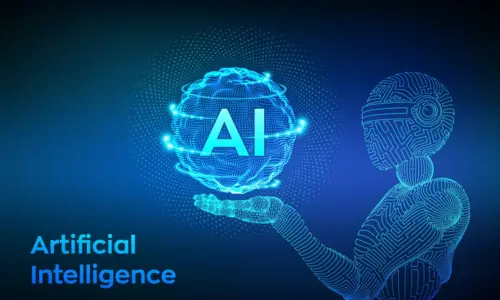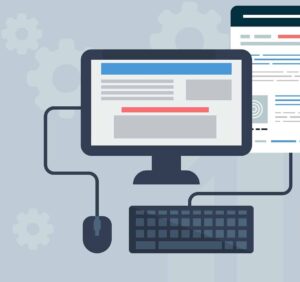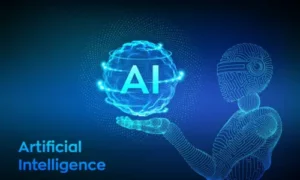
- Personalized Study Plans: AI algorithms can analyze your strengths and weaknesses based on past performance and suggest a tailored study plan to optimize your preparation.
- Content Curation: AI-powered platforms can curate high-quality study material from reputable sources, filtering out low-quality content and ensuring that you access only the most relevant and reliable information.
- Practice Tests and Mock Exams: AI can generate practice tests and mock exams based on the UPSC exam pattern, helping you simulate exam conditions and identify areas for improvement.
- Instant Feedback and Performance Analysis: AI algorithms can provide instant feedback on your answers, highlighting mistakes and offering explanations to help you understand concepts better. They can also analyze your performance over time, tracking progress and suggesting areas for further focus.
- Natural Language Processing (NLP) for Essay Writing: AI-powered tools equipped with NLP capabilities can help you improve your essay writing skills by providing real-time feedback on grammar, style, coherence, and relevance of content.
- Revision Assistance: AI can assist in creating concise summaries and flashcards based on your study material, facilitating efficient revision and retention of key concepts.
- Current Affairs Updates: AI algorithms can aggregate and summarize current affairs relevant to the UPSC exam, keeping you updated on the latest developments without overwhelming you with unnecessary information.
Now, let’s brainstorm some unique and engaging content ideas:
- “Mastering UPSC: AI-Powered Exam Strategies”: This article could delve into the various ways AI is revolutionizing UPSC exam preparation, offering tips and recommendations for utilizing AI tools effectively.
- “Cracking UPSC with Cutting-Edge Technology”: Highlight how AI algorithms can analyze past question papers, predict potential topics, and suggest targeted study strategies to enhance your chances of success.
- “The Future of Learning: AI in UPSC Exam Prep”: Explore the evolving role of AI in education and its impact on UPSC aspirants, discussing trends, innovations, and future possibilities.
- “Navigating the UPSC Maze: AI-Powered Study Plans”: Detail how AI algorithms can create personalized study plans based on aspirants’ individual strengths, weaknesses, and preferences.
- “Essay Writing Unleashed: AI Tools for UPSC Aspirants”: Showcase AI-powered writing assistants that help improve essay writing skills, offering practical tips and tools for crafting compelling essays.
- “Stay Ahead of the Curve: AI-Driven Current Affairs Updates”: Discuss AI-powered platforms that deliver curated and summarized current affairs tailored to UPSC exam requirements, enabling aspirants to stay informed and competitive.
- “From Data to Distinction: Leveraging AI for UPSC Success”: Explore how data analytics and AI can provide valuable insights into aspirants’ performance, helping them identify areas for improvement and optimize their study strategies.
Examples of Artificial Intelligence in Education
Inspired by a challenge from “an old school teacher who thinks that AI is ruining education,” Matthew Lynch reviews a wide range of topics in a piece titled “26 Ways That Artificial Intelligence Is Transforming Education For The Better.”For example:
Adaptive Learning: “Used to teach students basic and advanced skills by assessing their present skill level and creating a guided instructional experience that helps them become proficient.”
Assistive Technology: AI can help special needs students access a more equitable education, for example by “reading passages to a visually impaired student.”
Early Childhood Education: “AI is currently being used to power interactive games that teach children basic academic skills and more.”
Data and Learning Analytics: “AI is currently being used by teachers and education administrators to analyze and interpret data,” enabling them to make better-informed decisions.
Scheduling: Helping administrators to schedule courses and individuals to manage their daily, weekly, monthly or yearly schedules.
Facilities Management: AI is effective at “monitoring the status of power, Wi-Fi and water services; alerting the facilities management workers when problems arise.”
Overall School Management: AI is currently being used to manage entire schools, powering student records systems, transportation, IT, maintenance, scheduling, budgeting, etc.
Writing: Not only does Lynch assert that AI is already at work helping students improve their writing skills, he confesses, “I am currently using a grammar and usage app to help me write this article.”
Running down his list, Lynch also cites current uses of AI in education that include:
- Classroom/Behavior Management
- Lesson Planning
- Classroom Audio-Visual
- Parent-Teacher Communication
- Language Learning
- Test Prep
- Assessment
- Learning Management Systems
- Gamification for Enhanced Student Engagement
- Staff Scheduling and Substitute Management
- Professional Development
- Transportation
- Maintenance
- Finance
- Cybersecurity
- Safety and Security
Examples of how artificial intelligence is currently being used in higher education include:
- Plagiarism Detection
- Exam Integrity
- Chatbots for Enrollment and Retention
- Learning Management Systems
- Transcription of Faculty Lectures
- Enhanced Online Discussion Boards
- Analyzing Student Success Metrics
- Academic Research
- Connected Campuses
In terms of AI-infused specific technologies now being used in education, the list grows longer every day. Here are just a few:
- Thinkster Math: described by its creators as a “math tutoring program leverages human interaction and groundbreaking artificial intelligence to create personalized learning programs”
- Jill Watson: an AI-enabled virtual teaching assistant introduced by the Georgia Institute of Technology in 2016
- Brainly: a social media site for classroom questions
- Nuance: speech recognition software used by students and faculty; capable of transcribing up to 160 words per minute; especially helpful for students who struggle with writing or have accessibility needs
- Cognii: AI-based products, including a virtual learning assistant, for K-12 and higher education institutions, as well as corporate training organizations
- KidSense: AI educational solutions designed for children, including a voice-to-text tool with algorithms built to recognize the sometimes harder-to-translate speech of young learners
- Content Technologies: instructional design and content application solutions fueled by artificial intelligence research engines
As explained by CEO Dr. Scott Parfitt (see video), Content Technologies Inc. develops AI learning systems that are focused on “turning big data into information, and information into knowledge.”
“We send an engine out, it starts reading at light speed every article it can read. It’s learned its own material,” says Parfitt. The company’s education-focused solutions include:
- Palitt: built to help instructors easily create “your own custom lecture series, syllabus or textbook”
- Cram101: AI technology that can “turn any textbook into a smart study guide complete with chapter summaries, unlimited true-false and multiple choice practice tests and flashcards all drilled down to a specific textbook, ISBN number, author and chapter.”
- JustTheFacts101: intended to function as the AI equivalent of an old-fashioned yellow marker, instantly highlighting and generating book and chapter-specific summaries
AI in Education [Inclusion and Universal Access]
Bernard Marr explains that AI tools can enhance inclusion and universal access to education in a number of ways, including:
- Helping to “make global classrooms available to all, including those who speak different languages or who might have visual or hearing impairments”
- Creating access for “students who might not be able to attend school due to illness”
- Better serving “students who require learning at a different level or on a particular subject that isn’t available in their own school”
Overall, it is hoped that AI will ultimately help educators make continued progress in addressing the broad range of physical, cognitive, academic, social and emotional factors that can affect student learning and ensure that all students have equal opportunity in education, regardless of their social class, race, gender, sexuality, ethnic background or physical and mental disabilities.
AI in Education [Individualized Learning]
There is also considerable optimism around the idea that, as artificial intelligence becomes a more integral part of the classroom, teachers will be better equipped to offer an individualized learning experience for every student.
According to an article in The Atlantic, (“Artificial Intelligence Promises a Personalized Education for All”), artificial intelligence holds the potential to “enhance human teachers’ abilities to tailor lessons to each student without knocking their class schedule off track,” eliminating the need for educators to “teach to the middle,” as often happens when their students have a range of skill levels and learning abilities.
Rose Luckin, a professor of learning-centered design at University College London, is quoted as saying that, “The real power of artificial intelligence for education is in the way that we can use it to process vast amounts of data about learners, about teachers, about teaching and learning interactions.” Ultimately, AI can “help teachers understand their students more accurately, more effectively.”
The Future of AI in Education
Though there continues to be widespread debate over the pros and cons of deploying AI technology in the field of education, including the concerns about depersonalization and the ethical considerations cited above, there is an emerging consensus that the extraordinary range of current and future benefits will carry the day.
This report on Artificial Intelligence in Education was developed by the University of San Diego’s innovative, online Master of Science in Applied Artificial Intelligence program, an AI industry thought leader and education partner.





